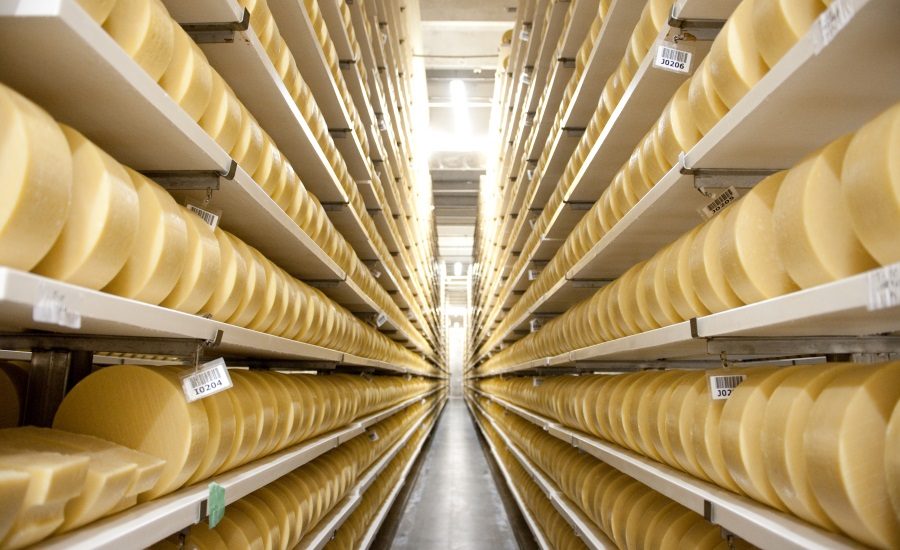Italian Parmesan producers have begun inserting tracking chips into their cheese heads. This allows you to distinguish real cheese from fake.
The courts have frequently ruled that “Parmigiano” cheese can only be made in Italy. Just as Champagne can only be produced in France, a European Union court ruled in 2008 that cheese can only be sold as “parmesan” if made by Reggiano producers in Italy.
However, counterfeiters still exist in the market. This is what prompted Italian cheesemakers to consider the need for tracking technologies.
However, Parmigiano Reggiano now has a new high-tech partner to battle counterfeit cheese, and it employs difficult-to-crack technology. The Consortium has collaborated with Kaasmerk Matec, a prominent producer of casein cheese marks, and p-Chip, a company that develops digital tracking technology, to embed tiny, food-safe transponders in wheels of Parmigiano Reggiano.

“The innovation combines food-safe Casein labels with the p-Chip micro transponder — a blockchain crypto-anchor that creates a digital ‘twin’ for physical items. This scannable new food tag is smaller than a grain of salt and highly durable, delivering next-generation visibility and traceability,” the Consortium explained.
“By integrating p-Chip micro transponders into Casein tags, [the Consortium] can better control its inventory, protect and differentiate its products against look and sound-alike brands and have access to unmatchable track-and-trace technology to protect itself in the case of recalls or other issues,” Joe Wagner, CEO of p-Chip Corporation, stated in the announcement.
In the second quarter of 2022, 100,000 Parmigiano Reggiano cheese wheels will be fitted with the new smart labels as a final test. The company will then decide whether to make the technology a permanent component of the cheese’s production.

Furthermore, the Consortium claims that this cutting-edge technology is an excellent method to safeguard the cheese’s centuries-old history.
“Parmigiano Reggiano is one of the world’s oldest and most famous cheeses, and it is a product that symbolizes Italian produce,” Nicola Bertinelli, president of the Parmigiano Reggiano Consortium, stated.

So, the next time you buy a cheese labelled “Parmigiano Reggiano” at the supermarket; you may well be sure that it is the real one.


